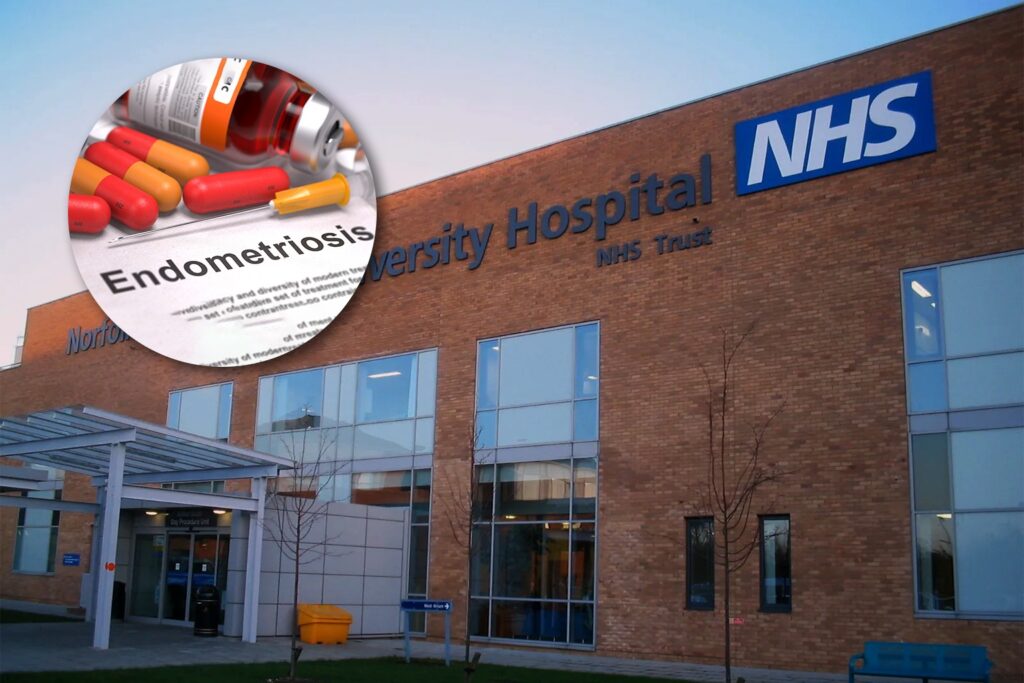
Significantly in terms of endometriosis treatment, the National Health Service (NHS) in England has approved the first daily tablet meant to control symptoms. It will only be accessible, though, to those who have run out of other therapy choices.
Affecting about 1.5 million women in the UK, endometriosis is a chronic illness that causes extreme pain, tiredness, and difficulties that could compromise everyday living and fertility. Approved by the National Institute for Health and Care Excellence (NICE), the recently approved drug is called relugolix combo therapy. Patients would find more convenience from this oral drug than from present injectable treatments that call for hospital visits.
The disorder usually causes incapacitating symptoms like severe menstrual pain, excessive bleeding, discomfort during urine and bowel motions, and problems conceiving. Many women find controlling these symptoms a difficult road, usually including hormonal contraception, intrauterine implants, or surgery. The novel medication provides required hormone replacement therapy at the same time as blocking particular hormones causing the disease.
NICE has said despite its possible advantages that the pill would only be recommended to about 1,000 women yearly—those who have not found relief from any other medical or surgical treatment. Reactions to this choice have been somewhat divided. Although Endometriosis UK appreciates the inclusion of a new treatment alternative, the charity has underlined that only a quite tiny number of people will gain from it.
Director of medicines evaluation at NICE Helen Knight called the approval in endometriosis treatment a “potential step-change”. She underlined that stopping and restarting the medicine is a more flexible choice especially for those who intend to become pregnant or suffer adverse effects since it is so easy. She also noted that depending less on hospital-administered injections could assist to relieve strain on NHS resources.
There had not been any easy road to get this medicine approved. NICE first turned down the medication, but then approved it after more manufacturer data proving its cost-effective and potency. For qualified patients, a 28-day supply of the drug will cost £72, hence it is more easily available.
For those like 27-year-old Ami Clarke from St. Albans, the availability of fresh treatment choices offers a ray of optimism in an often depressing fight with endometriosis. Ami struggled with symptoms from her early teens and went through years of misdiagnoses and useless therapies before having several operations. Although these surgeries offered some comfort, her agony has continued and she is now looking for more treatment privately.
Ami’s narrative reflects the larger battles many with endometriosis experience. She calls the disorder “life-altering,” recalling how terrible pain affected her capacity to work and go to university. For many like her, the development of novel medicines marks advancement; still, further study and creativity in endometriosis therapy is desperately needed.
Although this new tablet marks a significant progress, experts agree it is not a complete fix. Chief executive of Endometriosis UK Emma Cox underlined the need of ongoing research funding as well as the creation of more inclusive treatment approaches. She underlined that although some people will get relief from this new drug, more solutions are required to solve the general influence of endometriosis.
Given endometriosis is still a difficult disorder with few treatment choices, this most recent advancement provides a step forward in allowing patients greater influence over their health. Still, constant research and improved therapy availability are very essential to guarantee better treatment for every one of the afflicted.








